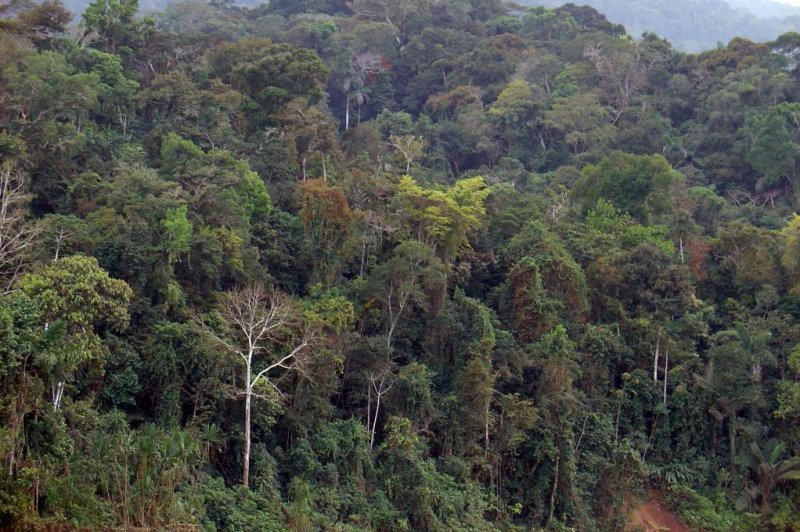Previous mercury contamination surveys have mostly focused on people living closed to gold mining activity, but a new study shows people much farther away can also be affected. Photo by
Martin St-Amant/Wikimedia
May 28 (UPI) -- Small-scale gold mining using mercury in the Peruvian Amazon threatens the health of communities 100 miles or more downstream, according to new research.
In 2015, scientists collected hair and blood samples of mercury from more than 1,200 Peruvian households in 23 communities, some close to mining operations and others more than 100 miles away. The research team returned a year later to retest the same households.
The data, published Thursday in the Journal of Exposure Science and Environmental Epidemiology, showed adults and children living in native villages were more likely to have higher mercury exposures than non-native Peruvians.
The diets of many native communities in Peru feature large amounts of freshwater fish. Mercury pollution concentrates in large fish at the top of the food chain.
"Assumptions about exposure are not reliable," study co-author Caren Weinhouse, an assistant professor at Oregon Health and Science University, said in a news release.
Previous mercury contamination surveys have mostly focused on people living closed to gold mining activity, but the latest research suggests the risk of exposure extends far beyond a mine's immediate surrounding.
"If you look more closely, it turns out your first instinct may be wrong," Weinhouse said.
A parallel study, published last week, showed Peruvian children living with the highest levels of mercury in their blood score lower on IQ tests and experience anemia, a dearth of hemoglobin that makes it harder for their oxygen to carry blood throughout the body.
"If you were going to have a high IQ anyway, you'll probably still have a higher IQ after exposure, but for kids at risk for impairment, a few points can make a difference," said Duke University graduate student Aaron Reuben, co-author of the neurocognitive study of Peruvian children.
While native communities downstream from gold mining were at greater risk of mercury exposure, researchers found elevated mercury levels in the blood samples of more than half the general population.
"Our paper describes some plausible biological pathways for that to happen," said William Pan, an associate professor of environmental sciences and policy at Duke. "But really, this is something we need to understand a bit more."















